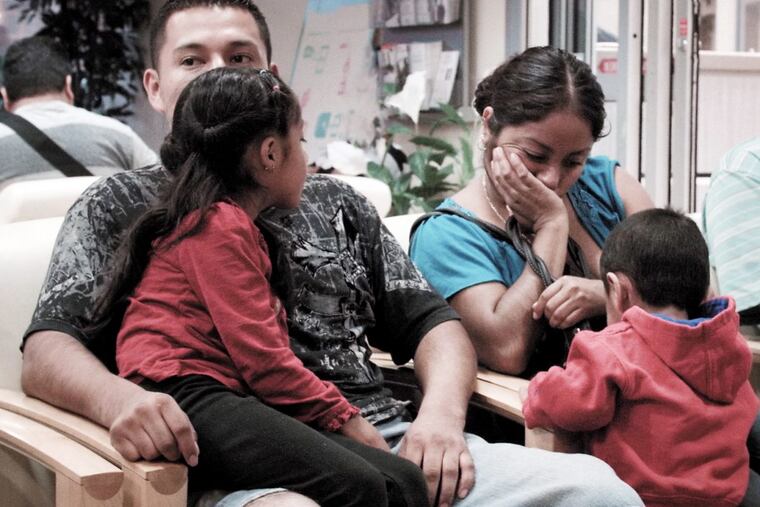Opinion: Confining immigrant children on military bases is unnecessary cruelty
Americans should be outraged at the news that the Trump administration is considering breaking apart desperate immigrant and asylum-seeking families and placing the children in camps on military bases.

Americans should be outraged at the news that the Trump administration is considering breaking apart desperate immigrant and asylum-seeking families and placing the children in camps on military bases.
Since August 2017, the U.S. Immigration and Customs Enforcement has been weakening parental rights, overturning earlier measures meant to facilitate children's well being.
Earlier this month, the Marshall Project, a nonpartisan news organization focused on the U.S. criminal justice system, reviewed the steps taken to curtail legal protections for immigrant juveniles. Under the guise of law enforcement, federal officials increased efforts to detain vulnerable children entering the U.S. in order to escape violence or trafficking.
Now the federal government is poised to go a step further, taking children away from parents in order to deter those seeking asylum or refuge.
The outright cruelty of separating and incarcerating children and the threat it poses to their health is stunning. Who will care for the children? Who will educate them? Who will look after their physical and mental health needs? Will infants and toddlers become part of this incarcerated group? How quickly can families be reunited? The harm done by separation can be lasting.
Organizations of professionals dedicated to the well being of children have spoken out about the need for protecting young people from areas racked by deadly violence. The American Psychological Association advocates federal policies on immigration that promote keeping families together. Last year, the American Academy of Pediatrics issued a statement urging the President to ensure that families fleeing violence and seeking refuge be treated with compassion. Foster care experts have long known that separation of children from families can have lasting traumatic developmental effects even when it is necessary for the safety of the children. In regards to immigration, the National Association of Social Workers has urged avoiding long-time family separation. The decision makers in Washington, D.C. should be listening to these experts and turning to them for help in making immigration programs addressing families better for all parties.
We've been down this ugly road of family separation before, with Native American boarding schools that became cesspools of physical and sexual abuse. The schools, established in order to take children far from their parents and force them to lose their culture and their language, left a terrible legacy of suicide, alcohol abuse, and family dysfunction. To trod that ground again, destroying families and scarring children, is not just about failing to learn the lessons of history, it is about failing to build a better nation.
In 1790, George Washington wrote to the congregation of the Touro Synagogue, "happily the Government of the United States gives to bigotry no sanction, to persecution no assistance…" That was something to aspire to in 1790 and so it is today. Our elected officials must turn stop persecuting children and instead focus on protecting them.
Janet Golden is a professor of history at Rutgers University-Camden.